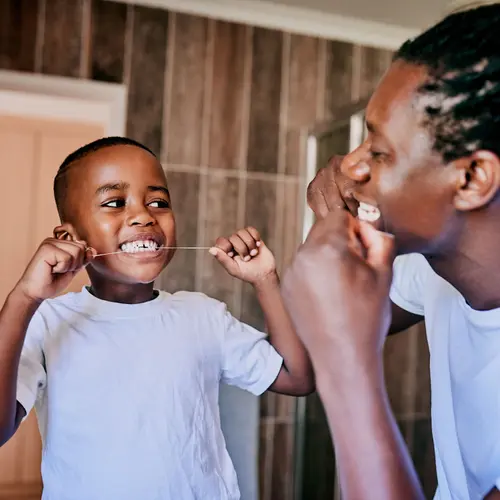Have you heard of sleep dentistry? No, it's not napping during a cleaning. Sleep dentistry is what dentists do to help people with sleep problems.
Since the American Academy of Dental Sleep Medicine's founding, doctors, sleep specialists, and dentists have worked together more and more, mostly on easing sleep apnea and snoring symptoms. About 50 million to 70 million Americans have ongoing sleep disorders, including about 18 million with sleep apnea.
Obstructive sleep apnea (OSA) happens when tissue in the back of the throat collapses and blocks the airway while you're sleeping, cutting the amount of oxygen delivered throughout the body. When blood-oxygen levels drop low enough, you momentarily wake up, though sometimes so briefly you don't even know it, says Mark Wolff, DDS, PhD. He's a professor and chair of Cariology and Comprehensive Care at NYU College of Dentistry. Snorers may also lose sleep, sometimes because their own loud honking rouses them -- not to mention their bed partner, also bothered by the noise.
One dental remedy: a custom oral appliance worn at night. These plastic devices pull the jaw forward, which advances the tongue and potentially opens the airway, cutting down on snoring and the tissue collapse that causes OSA. They're like night guards and retainers with a top and a bottom.
During your first visit, your dentist takes molds of your teeth and bite, and sends them out to a manufacturer. At the next visit, he'll adjust the appliance, show you how to put it in, and modify it to make it more comfortable. The work-up and the device can run up to $5,000 -- but medical insurance may cover much of the cost, depending on your diagnosis.
For many people with OSA, appliances are a better choice than CPAP (continuous positive airway pressure) machines prescribed to help nighttime breathing. The bulky masks aren't for everyone, says Leopoldo Correa, BDS. Almost half of people stop using them. Correa is an associate professor and head of Dental Sleep Medicine at Tufts University School of Dental Medicine in Boston.
Oral appliances are a welcome alternative, says Wolff -- one that people are more likely to use. A 2013 study confirmed that oral appliances can successfully treat apnea cases of all levels of severity.
Wake-up Call
Could you have sleep apnea? Look out for warning signs other than snoring and waking, Correa says.
Study the scale -- and your collar size.Sleep apnea is more often diagnosed in people who are overweight and who have a large neck; excessive tissue in the throat contributes to less airflow.
Put down the coffee. Are you chugging coffee because you're always tired, despite getting to bed early enough? People with sleep apnea may log plenty of hours in the sack, but the quality of sleep is so poor they're always fatigued.
Download the iPad app for the current issue of "WebMD Magazine."

